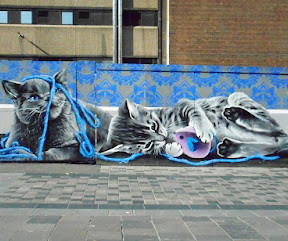Canadian Perspectives on Artist Resale Rights
IPilogue
OCTOBER 7, 2022
Emily Chow is an IPilogue Writer and a 2L JD Candidate at Osgoode Hall Law School. Under current Canadian law, artists such as sculptors and painters receive no profits from their works’ resale. The study also found that the market continued to grow after the implementation of the resale right in 2006.












Let's personalize your content